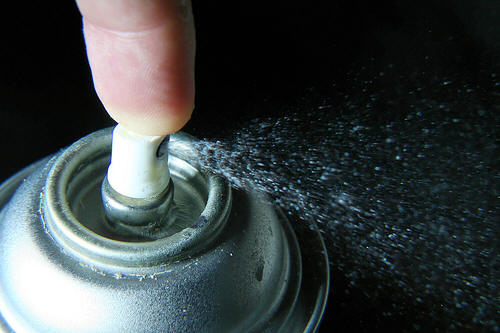 Women exposed to hairspray in the workplace in their first trimester of their pregnancy have more than double the risk of having a son with the genital birth defect hypospadias, according to a new study published in the journal Environmental Health Perspectives.[social_buttons]
Women exposed to hairspray in the workplace in their first trimester of their pregnancy have more than double the risk of having a son with the genital birth defect hypospadias, according to a new study published in the journal Environmental Health Perspectives.[social_buttons]
The study was conducted by researchers from Imperial College London, University College Cork (Ireland), and Center for Research in Environmental Epidemiology (Spain) and is the first to show a significant link between hairspray and hypospadias, which is one of the most common birth defects of the male genitalia.
The causes of hypospadias are poorly understood. Instead of opening at the tip of the penis, a hypospadic urethra opens elsewhere along a line running from the tip along the underside to the base, usually corrected with surgery in the first year of the boy’s life.
“Hypospadias is a condition that, if left untreated, can cause problems in later life. Although surgery to correct it is usually successful, any surgery will be traumatic for the child and his parents. It is encouraging that our study showed that taking folic acid supplements in pregnancy may reduce the risk of a child being born with the condition. Further research is needed to understand better why women exposed to hairspray at work in the first 3 months of pregnancy may have increased risk of giving birth to a boy with hypospadias.” – Professor Paul Elliott, Department of Epidemiology and Public Health at Imperial College London
Women who took folic acid in the first three months of pregnancy were a third less likely to have a baby with hypospadias, reports the study, and concludes:
Excess risks of hypospadias associated with occupational exposures to phthalates and hair spray suggest that anti-androgenic endocrine disrupting chemicals may play a role in hypospadias. Folate supplementation in early pregnancy may be protective.
The study also found no correlation between vegetarianism and hypospadias, contrary to earlier research.
The full peer-reviewed study is available at Environmental Health Perspectives.
More reading on phthalates:
- Honey, We Shrank His Penis.
- Toxins in Commercial Air Fresheners – Report Finds Phthalates in Popular Brands
- Toxic Teens: Common Cosmetics Chemicals Alter Hormones, Disrupt Puberty
- Baby Lotion Linked to Phthalates
Image: AMagill at Flickr under Creative Commons License
[…] this post, chances are that you cut down on aerosol cans as soon as you started to go green. Among other things, they can be very hard to recycle. Also, kids can huff them. If you still use them […]